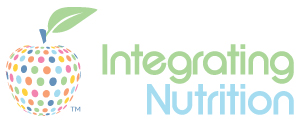Lisa D. Ellis
MS, RDN, CDN, LCSW, CEDS-C
Nutrition Therapist/ Registered Dietitian/ Social Worker
Lisa Ellis is a Nutrition Therapist/Registered Dietitian in private practice in the New York City / Westchester County area, where she provides compassionate, personalized care as she counsels children, adults, adolescents, and their families. She received her B.S. from Simmons University in Nutrition and Psychology, followed by an M.S. in Clinical Nutrition from New York Medical College, and later earned her MSW from Fordham University. She also has postgraduate credit towards a PhD in nutrition at NYU.
A recognized expert in the field of nutrition and Emotion-Triggered Eating™, she has contributed nutrition information to a variety of publications, including Redbook, Glamour, Westchester Magazine, Runner’s World and Today’s Dietitian. Recently, Lisa has written a book about emotion-triggered eating called Why Did I Just Eat That?

Connect with Lisa Ellis
Lisa’s Philosophy
People struggling with disordered eating tend to blame themselves for issues that are actually rooted in biology—not personal failure. But while such struggles may not be their fault, it is up to them to transcend them. With that in mind, I guide my clients toward a more empowered relationship with food by addressing the emotional, psychological, and physical factors that shape eating behaviors. Rejecting diet culture and restrictive dieting, I guide them toward self-compassion, mindfulness, and flexible thinking to create lasting change. The bottom line: Our relationship with food mirrors our relationship with ourselves—heal one, and the other will follow.


